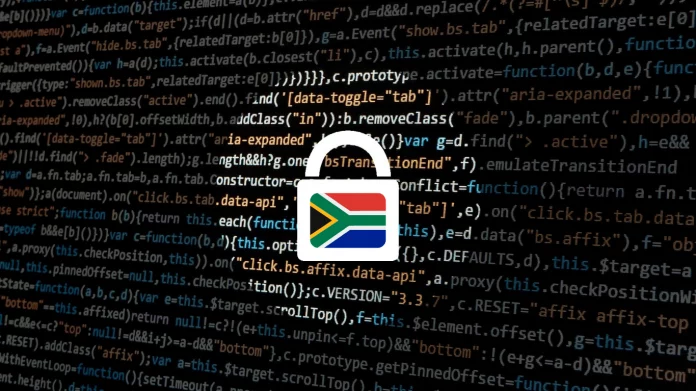According to recent statistics, South Africa is among the top 10 countries by cybercrime density.
Cybercrime density simply refers to the different types of cybercrime as a whole, which includes, but is not limited to email and internet fraud, social media hacks, identity fraud, ransomware attacks, investment fraud, credit card fraud, spoofing, phishing and more.
These criminal activities are carried out by hackers who are usually highly technically skilled. More often than other, these cybercriminals commit cybercrime for monetary gains. Sometimes it can be personal too.
It is important to keep in mind that although cybercrime is a predominantly an anonymous activity carried out online it can have very drastic, and perhaps, even life-changing consequences for the victims of these attacks.
Cybercrime in South Africa is a difficult reality for its victims and a very real concern for many.
Here are seven things you can do to protect yourself against cybercrime in South Africa:
- Be careful what you post online
- Make use of strong passwords
- Use secure browsers
- Always turn on 2 Factor Authentication
- Use the latest operating systems
- Avoid suspicious links and email attachments
- Use antivirus software
Be careful what you post online
We use online tools and platforms for everything from entertainment to work and social interaction. Do not share any personal identifiable information which could be used by cybercriminals for ransomware attacks through them holding your information hostage or by draining your bank accounts.
Easier said than done? Through obtaining your personal identifiable information, cyber criminals are able to impersonate and pretend to be you.
Personal identifiable information includes, but is not limited to, your name, identity number, photos and videos of you, your IP address, device used and more.
It is indeed a difficult task to erase all personal identifiable information from the web. As the saying goes…
“Once something is on the internet it is there forever”
What we can do is minimize our online presence and make it extremely difficult for cyber criminals to get hold of our personal information.
This can be achieved through setting social media accounts to ‘private’, avoiding clicking on any suspicious email attachments or links, and staying cautious while browsing the endless world wide web.
Make use of strong passwords
Never use the same password on more than one website. If you use the same password on multiple websites, and a hacker is able to crack your password, then hackers can potentially access the other sites where you’ve used the same login credentials.
When choosing a password, the longer the better, and be sure to make use of upper- and lower-case letters combined with numbers and symbols. A great way to manage all your passwords is with a password manager.
Many browsers have built-in password managers. There are also great password manager tools like LastPass and Keeper that you can use to generate and store passwords.
Avoid clicking on links in emails that take you to a login page. Rather take the long route and visit the website by navigating to it in your browser. Lastly, never share your password or email your password to anyone.
Use secure browsers
We are all familiar with Google’s Chrome, Mozilla’s Firefox, or Apple’s Safari web browsers, but did you know that there are ways to bolster the security of these browsers, or to ditch them altogether for a more privacy focused web browser?
Why consider a more secure browser? Browsers that focus on security make use of security-focused architecture to add a layer of protection over the browser. So when visiting a webpage, the browser will scan over the page and block any tracking, ads or code which it deems to be unsafe to reach you, the user.
Two popular security-centric web browsers are Brave, based on the chromium web browser, and Tor, which enables anonymous web browsing.
Always turn on 2FA
If the online tools and platforms you use, especially any financial or social media sites, have the option to enable 2 factor authentication (2FA) or any additional security feature, be sure to have it enabled.
A really strong password goes a really long way, but having 2fa enabled puts you one step ahead of cyber criminals.
Examples of 2 factor authentication include receiving a code to your phone number which needs to be verified to prove that it is really you trying to log in to an online tool or platform or having to scan a QR code.
Use the latest operating systems
Ensure that your electronic devices such as computers and smartphones are running the latest versions of their respective operating systems.
Reason being – that the latest version would have made use of the latest security features and best practices and it would have patched any security issues and vulnerabilities discovered in prior releases.
Use antivirus software
Many people have stopped their antivirus subscriptions or have not gotten around to installing it on their new devices and computers.
This could be because many new operating systems come with built-in security measures, such as Windows Defender on Windows 10 and later versions, and has many of the features as that of most antivirus software programs.
Although antivirus software cannot stop all cyber threats, it is still your best bet at combating cybercrime.
Antivirus software programs can scan, prevent, as well as detect malware, viruses and data threats on your device, or on removable devices such as USBs.
Additionally some antivirus software have additional tools and capabilities such as link checkers and a file scanner which scans all downloaded files before you can open them.
We can conclude that keeping your personal data is essential online. Be sure to follow the steps above to better your chances at staying safe online and protecting yourself against cybercrime in South Africa.
You will be saving yourself a lot of headaches in the future. Do not make it easy for someone to turn your life upside down overnight.
If you operate a company or are an employer, it is even more important that you take the necessary steps to protect your customers’, and your employees’ personal information.

